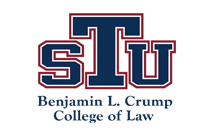Intercultural Human Rights Law Review
First Page
229
Abstract
Human trafficking is one of the largest criminal industries in the world. Human trafficking, also referred to as modem-day slavery, ruthlessly intervenes with a person's freedom and human dignity. It is a widespread phenomenon all over the world and no country is completely immune to it. Countries can act as places of source, transit or destination. The perpetrators take control of the victims and take away their freedom for the purpose of exploitation, prostitution and other sexual abuse, forced labor or trade in bodily organs. Victims have no control over their work, living conditions or movement, and cannot choose whether they work or not. This article focuses on trafficking in human beings in Finland using policy-oriented jurisprudence as guidance. To be able to understand the phenomenon of human trafficking in Finland, we will first define human trafficking as an international crime and then discuss the trade in human beings in Finland. Conflicting claims and perspectives of both claimants will be considered. After discussing past trends in decision concerning human trafficking, the article will focus on predicting future decisions. It will end by appraising past and future decisions, discuss alternatives, and present recommendations on how to prevent human trafficking and improve the situation of victims in the country.
Recommended Citation
Sari Latomaa,
Human Trafficking in Finland,
9
Intercultural Hum. Rts. L. Rev.
229
(2014).
Available at:
https://scholarship.stu.edu/ihrlr/vol9/iss1/7

